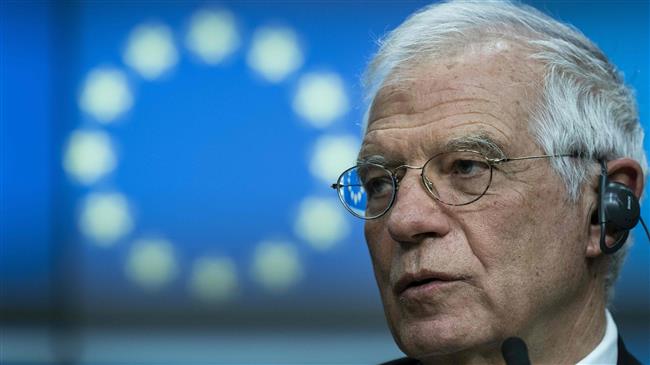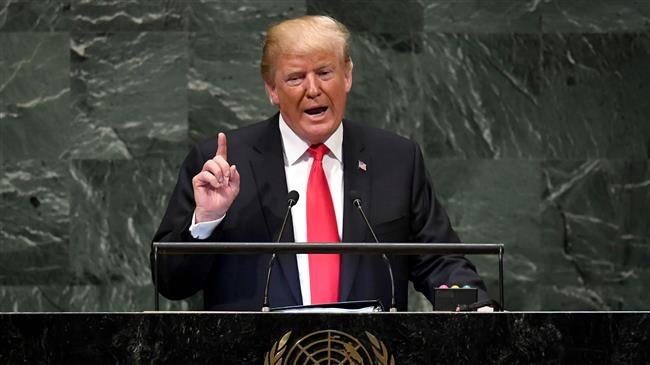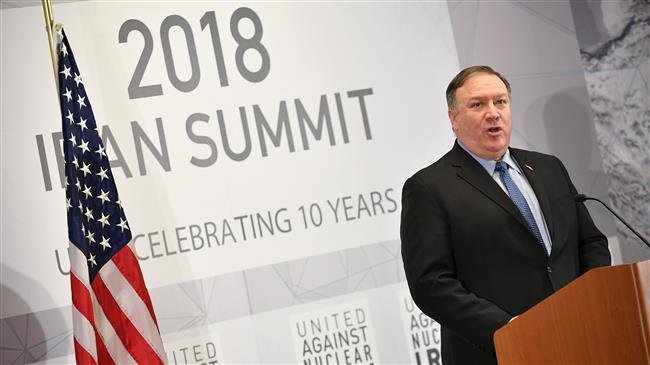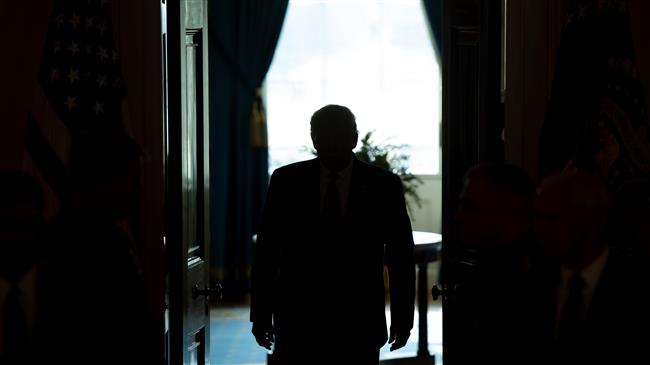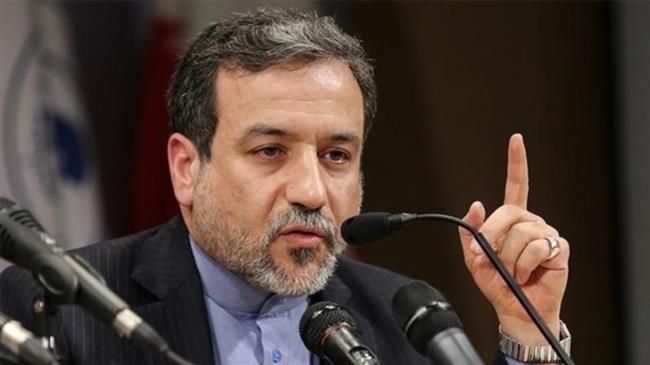The European Union will give its members more time to discuss, under a dispute mechanism triggered by France, Germany and Britain, possible ways to preserve a nuclear deal signed in 2015 between Iran and six countries.
Publish dateFriday 24 January 2020 - 21:54
Story Code : 201708
"There is agreement that more time is needed due to the complexity of the issues involved. The timeline is therefore extended," said Josep Borrell, the EU foreign policy chief, in a statement on Friday.
"All agreed to pursue expert-level discussions addressing the concerns regarding nuclear implementation, as well as the wider impacts of the withdrawal of the United States from the JCPOA (the nuclear deal, officially known as the Joint Comprehensive Plan of Action) and its re-imposition of sanctions."
The three European signatories to the deal, collectively known as the EU3, accused Iran on January 14 of violating the terms of the JCPOA and announced that they plan to trigger a dispute settlement mechanism that could eventually restore UN Security Council sanctions against the Islamic Republic.
Under the mechanism outlined in the deal, the EU would also inform the other parties — Russia and China as well as Iran itself. There would then be 15 days to resolve the differences through the JCPOA Joint Commission. If no settlement is reached through the commission, the foreign ministers of involved countries will then discuss them for another 15 days. In case of need, an advisory board will be formed to help foreign ministers.
However, there are some questions over when the 15-day period should start because Iran has not formally recognized the consultation process.
China and Russia, other signatories to the JCPOA, have publicly expressed misgivings about the Europeans' decision to trigger the mechanism.
Borrell further said he had consulted the countries still in the deal, including China and Russia, adding that all are determined to save the accord.
The EU's top diplomat noted that the joint commission, which regulates the JCPOA and comprises representatives of all the countries involved, will meet in February, though he did not give a precise date.
US President Donald Trump withdrew from the accord in May 2018 and re-imposed unilateral sanctions on Iran. The EU3, under Washington’s pressure, failed to protect Tehran’s business interests under the JCPOA against the American bans.
After months of gradual steps to reduce compliance, Iran announced on January 5 that it would take the fifth and final step in reducing its commitments under the nuclear accord to both retaliate for Washington’s departure, and trigger the European trio to respect their obligations towards Tehran.
The Iranian government announced in a statement that from now on, the country will observe no operational limitations on its nuclear industry, including with regard to the capacity and level of uranium enrichment, the amount of enriched materials as well as research and development.
Iran's Deputy Foreign Minister for Political Affairs Abbas Araqchi said on January 19 that the three European signatories to the Iran nuclear deal cannot logically activate the dispute settlement mechanism, because Iran has already done that.
“We are now engaged in complicated legal discussions and Russia and China are of the same opinion. It was Iran that first resorted to Article 36 [of the JCPOA] and completed its application. Therefore, logically, legally and even politically speaking, the European countries cannot take advantage of this article, because we have already done that and applied its mechanism in full,” Araqchi said.
"All agreed to pursue expert-level discussions addressing the concerns regarding nuclear implementation, as well as the wider impacts of the withdrawal of the United States from the JCPOA (the nuclear deal, officially known as the Joint Comprehensive Plan of Action) and its re-imposition of sanctions."
The three European signatories to the deal, collectively known as the EU3, accused Iran on January 14 of violating the terms of the JCPOA and announced that they plan to trigger a dispute settlement mechanism that could eventually restore UN Security Council sanctions against the Islamic Republic.
Under the mechanism outlined in the deal, the EU would also inform the other parties — Russia and China as well as Iran itself. There would then be 15 days to resolve the differences through the JCPOA Joint Commission. If no settlement is reached through the commission, the foreign ministers of involved countries will then discuss them for another 15 days. In case of need, an advisory board will be formed to help foreign ministers.
However, there are some questions over when the 15-day period should start because Iran has not formally recognized the consultation process.
China and Russia, other signatories to the JCPOA, have publicly expressed misgivings about the Europeans' decision to trigger the mechanism.
Borrell further said he had consulted the countries still in the deal, including China and Russia, adding that all are determined to save the accord.
The EU's top diplomat noted that the joint commission, which regulates the JCPOA and comprises representatives of all the countries involved, will meet in February, though he did not give a precise date.
US President Donald Trump withdrew from the accord in May 2018 and re-imposed unilateral sanctions on Iran. The EU3, under Washington’s pressure, failed to protect Tehran’s business interests under the JCPOA against the American bans.
After months of gradual steps to reduce compliance, Iran announced on January 5 that it would take the fifth and final step in reducing its commitments under the nuclear accord to both retaliate for Washington’s departure, and trigger the European trio to respect their obligations towards Tehran.
The Iranian government announced in a statement that from now on, the country will observe no operational limitations on its nuclear industry, including with regard to the capacity and level of uranium enrichment, the amount of enriched materials as well as research and development.
Iran's Deputy Foreign Minister for Political Affairs Abbas Araqchi said on January 19 that the three European signatories to the Iran nuclear deal cannot logically activate the dispute settlement mechanism, because Iran has already done that.
“We are now engaged in complicated legal discussions and Russia and China are of the same opinion. It was Iran that first resorted to Article 36 [of the JCPOA] and completed its application. Therefore, logically, legally and even politically speaking, the European countries cannot take advantage of this article, because we have already done that and applied its mechanism in full,” Araqchi said.
avapress.net/vdchvzni623nvqd.01t2.html
Tags
Top hits
